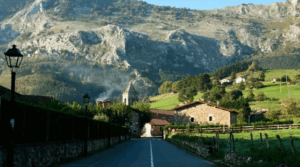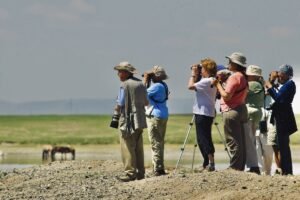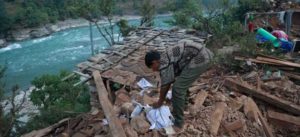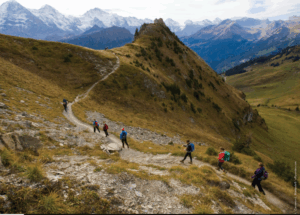Can Nepal cope with natural disasters and COVID-19 at the same time?

By Ross Hansen ——
As we all know, COVID-19 is one of the biggest threats facing the world right now. Governments are scrambling to get a grip on the virus, and the World Health Organization has warned that, based on the current trajectory of infections, the worst may be yet to come. Countries are already stretched to the limit, but they also have other threats to deal with.
Sadly, natural disasters haven’t gone away during the pandemic. Quite the opposite, in fact – due to climate change, these disasters are more extreme and frequent than ever before. Countries need to prepare themselves to deal with these disasters at the same time as crippling COVID-19 outbreaks. But it’s a big ask. Is Nepal ready for such a scenario?
Image credit : https://unsplash.com/photos/8BMsdwp0jBk
Background

Unfortunately, Nepal is no stranger to natural disasters. Due to its location on the boundary of the Indo-Australian and Asian tectonic plates, the country is prone to earthquakes – and the dramatic peaks of the Himalayas are a testament to how violent and powerful the movement of these plates has been throughout the Earth’s history. A recent quake in April 2015, for example, measured 7.8 on the Richter scale and sadly resulted in the deaths of more than 9,000 people (and destroyed the homes of hundreds of thousands more).
But earthquakes aren’t the only threat. This summer, Nepal has already been hit by severe floods and landslides that have killed 123 and displaced over 50,000 more. Nepal’s history of natural disasters needs to be put into perspective, however. It may sound like they’re unusually frequent, but Nepal is not actually in the top 20 list of countries most prone to natural disasters.
With the risk of more floods on the way, however, it remains a real possibility that Nepal could be facing the dual threat of natural disasters alongside a surge in COVID-19 infections in the winter.
The dual threat

But why is this dual threat so dangerous? Nepal’s government and emergency services are already overwhelmed by disasters such as this summer’s floods, and so any meaningful surge in COVID-19 infections at the same time would result in worse outcomes for all those affected by both disasters.
As well as stretched emergency services, the occurrence of a natural disaster at the same time as a COVID-19 outbreak would potentially accelerate virus infections even further, leading to more suffering. Thousands lost their homes due to this summer’s floods, living in poorly maintained emergency accommodation where social distancing was less possible and multiple households intermixed. This is the dream environment for the virus to spread – if this were to be repeated in future, at the same time a large COVID-19 outbreak, the results would be even more disastrous.
Nepal has not had to face such a scenario yet – unlike some other countries in the world, it has not yet been overwhelmed by COVID-19. Any infections and deaths are worrying, of course, but so far Nepal’s healthcare system has been able to cope due to the imposition of a strict lockdown in March.
The virus has had a severe economic impact on Nepal, however – especially with tourism so central to its prosperity. According to the World Bank, the pandemic could push more of the country’s population below the poverty line. With Nepal’s economy struggling, funds for disaster preparation and response could be in even shorter supply in future – resulting in further suffering for the most vulnerable in society.
Is Nepal ready?
The dual impact of a natural disaster and a severe outbreak of COVID-19 is enough to overwhelm any country, but Nepal looks particularly vulnerable. Still reeling from this summer’s floods, and with an economy that continues to suffer, Nepal faces many challenges ahead. With further flooding (and other natural disasters) a possibility, it’s more important than ever to control the spread of COVID-19.
August 31 , 2020














